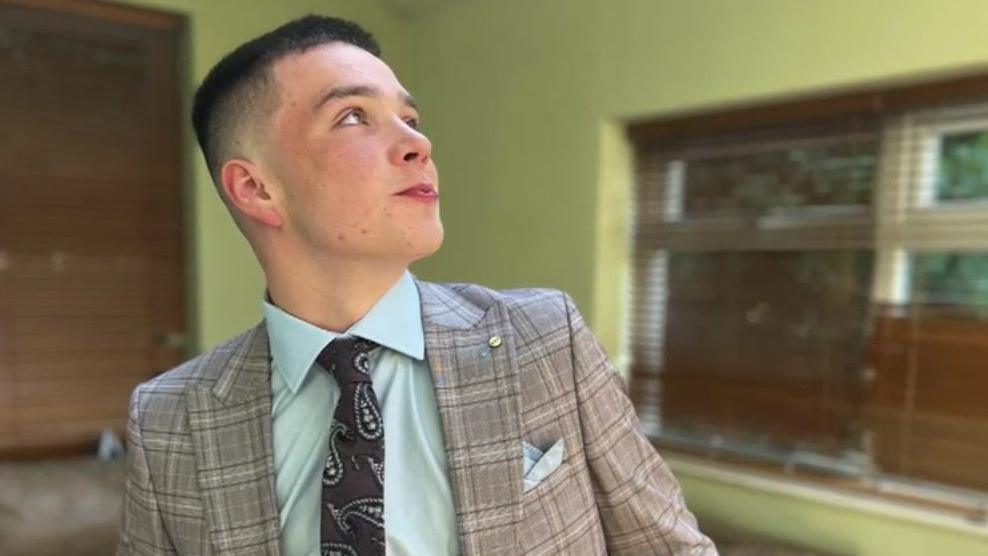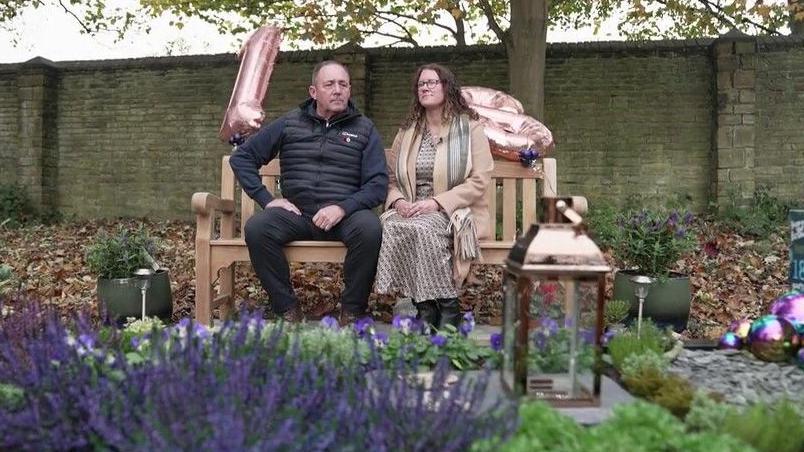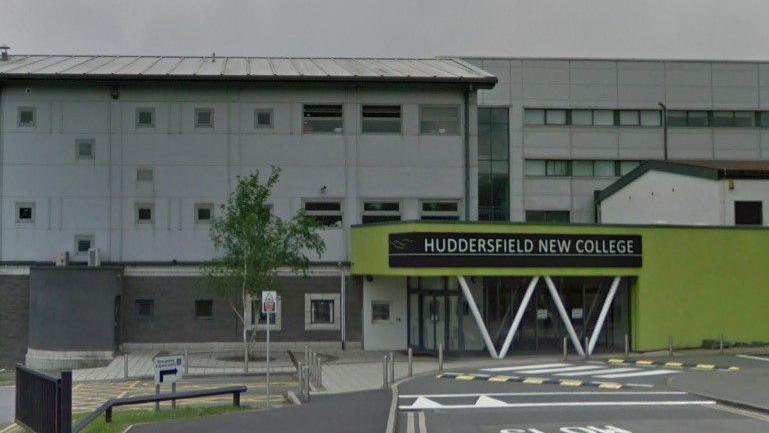Poor communication fear over boy's death - coroner

Henry Grierson had discharged himself from mental health services, an inquest heard
- Published
A coroner has raised fears about poor communication between a college and mental health services after a student from West Yorkshire with ADHD died.
Henry Grierson, 17, was found dead on 21 April, three days after he was expelled from Huddersfield New College.
An inquest heard that staff did not have up-to-date information about his health and coroner Angela Brocklehurst warned the college may not have been aware of how vulnerable he was.
A spokesperson for the college said staff would "always do anything we can to support our students" and would review how "difficult communications" were shared.
Henry, from Rastrick, near Brighouse, was diagnosed with ADHD when he was 10.
He stopped taking medication for his condition when he was about 14 because of adverse side effects, an inquest at Bradford Coroner's Court heard.
Henry was suspended from college on 11 April after being involved in an altercation and after an investigation, he was expelled.
The inquest heard staff had informed his mother, Ruth Grierson, of their decision before they emailed him.
Mrs Grierson said the way the college had informed Henry was "very lacking in compassion" and he was "let down" by them.
She believed there was a "direct link" between the email and his death.
"His self-esteem was already battered and this was the last straw, and he was not being properly supported or dealt with."
A Huddersfield New College spokesperson said Henry's mother was informed about the exclusion before they sent the email and that his father was with him when he read it.
They added: "We have strengthened our process to work with families to understand how we can share information with a student after an exclusion decision has been made.
"This includes understanding how we share information about topics such as the appeals process.”

Henry's parents Chad and Ruth Grierson visited his gravestone on what would have been his 18th birthday
Henry had discharged himself from the Child and Adolescent Mental Health Service (CAMHS) in November 2023 and from addiction organisation Recovery Steps in April.
His family said he had "self-medicated" his ADHD with illegal substances.
The inquest heard that the college's safeguarding team were not aware of the discharges, which was a "matter of concern".
Ms Brocklehurst issued a Prevention of Future Deaths report which warned that "communication between the college and CAMHS and Recovery Steps was not seemingly maintained to enable an awareness by the college of [Henry's] current mental health".
A college spokesperson said they would welcome steps to "support enhanced communication" between organisations such as CAMHS and schools and colleges.

Huddersfield New College said it had reviewed how it shared difficult news with students
Mrs Grierson called for better understanding of neurodiversity in schools.
"I want this so children aren't punished for things they cannot help," she said.
"It's really important that parents and schools understand - it's not just about a child who can't sit still, it's about a child with mental health problems who could go on to become a suicide risk."
A campaign to finance projects to support young people with ADHD in Henry's honour had raised more than £20,000.
Mrs Grierson said: "We miss him greatly, life is not the same, there will always be a before and an after.
"It's indescribable the pain we're all in - but we have to keep going and do something meaningful for him so it doesn't happen to other families."
The inquest recorded a narrative conclusion.
If you have been affected by any of the issues raised in our coverage you can visit the BBC's Action Line page for support and guidance.
Listen to highlights from South Yorkshire on BBC Sounds, catch up with the latest episode of Look North or tell us a story you think we should be covering here, external.